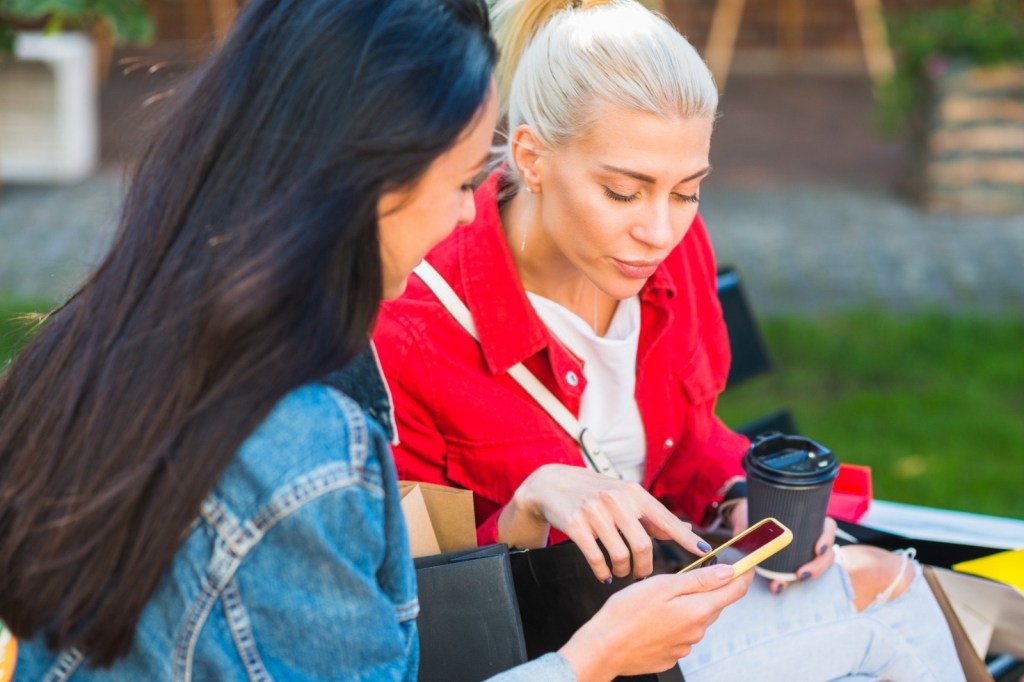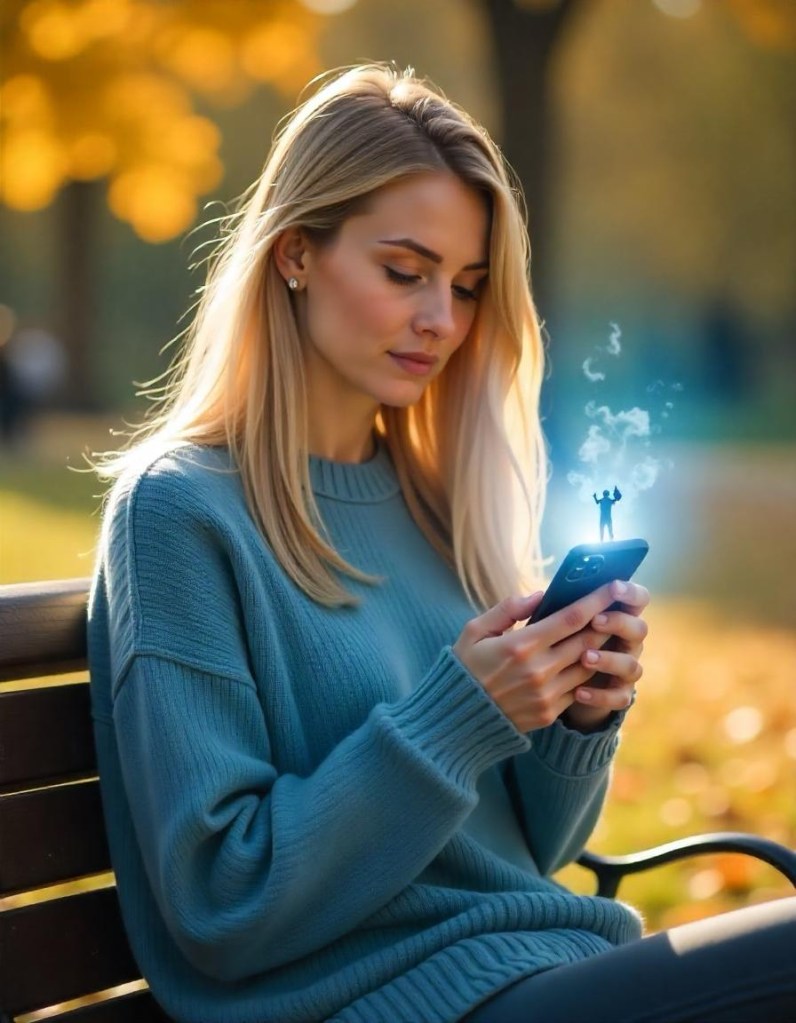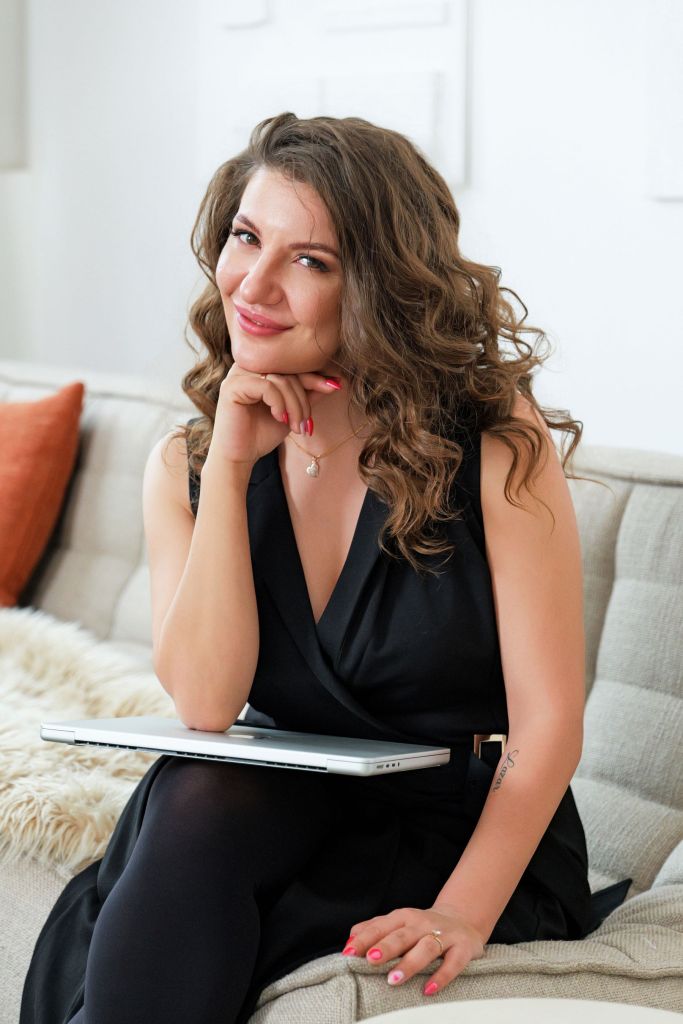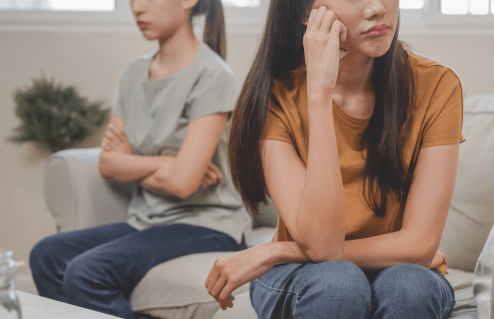Chaptly app founder on panic, partnership and a new way to heal

Advertorial promotion
Chaptly is a gamified self-healing app for those navigating toxic relationships, anxiety and emotional burnout. Here, the app’s founder, Milena Stankovic, BcA, shares her personal story of navigating panic disorder and becoming a mental health advocate.
I never planned to become a mental health advocate. But panic disorder didn’t ask for permission before it rewired my life.
It came like a thief in the night – silent, unexplainable, terrifying.
I was working in high-performance environments, surrounded by driven people, climbing the ladder in tech. On paper, I had everything. Inside, I was drowning.
I learned early on that the world often judges what it doesn’t understand. Mental illness still carries shame especially when it’s invisible.
Anxiety? “Just calm down.”
Panic attacks? “Just breathe.” – If I only could.
But what most people don’t realize is that these symptoms often aren’t standalone – they’re rooted in trauma. Trauma unspoken. Trauma unprocessed. Trauma passed down.
I lived with fear in my bones. Everyday tasks felt like warfare. And for years, I masked it. I functioned, until I couldn’t.

Behind the smile: what living with anxiety really looked like
Anxiety wasn’t just a bad day. It was waking up with a racing heart and not knowing why.
It was sitting in a boardroom, smiling on, while silently spiraling inside. It was canceling dinner plans and blaming the weather – because saying “I’m afraid I might lose control and embarrass myself” doesn’t go over well.
Eventually, I was prescribed anti-anxiety medication. At first, it helped. Until it didn’t. The medication became another cage, numbing me but never healing me.
I became dependent on chasing peace through pills instead of understanding what my body was trying to say.
What saved me was something I still believe too many people underestimate – support. My husband didn’t try to fix me.
He didn’t pathologize my fear. He held space. He saw the strong woman inside the frightened one. Love doesn’t cure mental illness, but it can remind you who you are beneath it.
He didn’t run when I broke down mid-flight. He didn’t flinch when I called him in tears from a hotel bathroom, convinced I was dying. He held me when I shook. Listened without trying to fix it.
And one night, when I confessed I didn’t think I’d ever feel “normal” again, he looked at me and said:
“Maybe you’re not meant to go back. Maybe you’re meant to build something forward. Why don’t you create the thing that could have helped you?”
That question changed everything.

Building something bigger than myself
As I recovered, I began co-founding a charity and running support groups for people living with anxiety, trauma, and complex emotional pain torn by toxic abusive relationships.
There’s something sacred about shared struggle. You learn that you’re not broken, that you’re human.
I also started helping others detox from anti-anxiety medications and reclaim their voices.
Now, it’s been six years since I stopped medication. Six years of learning how to sit with discomfort without judging it. Just last year I became a mother to a vibrant, soulful little boy – my greatest teacher.
Slowly, I began rebuilding my life – without meds, without numbing, without hiding.
I co-founded a charity that supported people with panic disorder, trauma, and emotional pain. We ran support groups. Shared stories. Hold space. We let people speak the words they’d been told were “too much.”
While being surrounded by people who share the same pain I realized:
Not everyone can afford therapy.
Not everyone has a safe partner.
Not everyone finds the right help in time.
And in this world of Instagram therapists and spiritual influencers – some incredible, some dangerous and fake – what people need is real, grounded support that’s accessible, trauma-informed, and emotionally intelligent.

The future of mental health can’t be exclusive
But here’s what continues to frustrate me: therapy is expensive. Time-consuming. And not always trauma-informed.
While some amazing clinicians exist, the industry is now flooded with Instagram therapists, spiritual bypassing, and quick-fix advice. The good, the bad, the ugly.
I’m not a Buddha. I don’t have the answers. I still get anxious. But what helped me – beyond therapy – was talking. Journaling. Reflecting. Using tools like ChatGPT to process when I couldn’t sleep.
Enrolling in a CBT-MBA program to understand the science behind emotions. But most importantly: turning my pain into purpose.
I’m not a guru. I’m not a wellness coach. But I’ve spent my life learning how to live with it, not against it.
After working at companies like Microsoft and Epic Games, I knew what tech could do when it was purposeful.
So I started building a platform that was everything I needed when I was struggling and everything the healing space is often missing.
Chaptly is the result.
A trauma-informed, gamified mental wellness app for people navigating recovery from toxic relationships, anxiety, and emotional burnout. But Chaptly is more than an app – it’s a companion on your healing journey.

With symbolic characters like HeartLock, RebelHeart, and RushHeart, users go on quests that reflect real life.
You don’t just read affirmations – you play through your pain, reflect on your past, and make healing choices in a safe, story-based world.
Think CBT meets storytelling. Psychology meets soul. AI meets emotional truth.
You can journal with AI that actually understands trauma. You get reflective questions, coaching prompts, and small quests that don’t overwhelm.
You get support even at 2 a.m. when everyone else is asleep. We made it for the women holding everyone else together while falling apart themselves.
For the men who were told to be strong but never taught how to be soft. For the inner child who still wants to be seen. For the single mom with no time. For the girl who can’t afford therapy but needs help now.
Chaptly is not a replacement for therapy. It’s a bridge.
I created the Chaptly app because I believe everyone deserves to feel whole, even if they don’t have a therapist on speed dial.
Because trauma doesn’t wait for your next paycheck to explode. Because healing isn’t linear, it’s messy. It is quite painful so why not make it a bit easier on ourselves?
And because I know what it’s like to feel broken in a world that demands perfection.
I’m not here to pretend I have it all figured out. But I am here to say: healing is possible. Even for you. Especially for you.
We live in a world that profits from our silence and rushes our healing. But I believe we are allowed to move at the speed of trust with ourselves, with others, with our pain.
The Chaptly app was born not from perfection, but from a thousand broken pieces I had to gather, forgive, and reimagine.
It’s not just an app. It’s a love letter to everyone who thought they had to suffer quietly. And maybe, just maybe, it’s proof that our deepest wounds can lead to our most meaningful creations – especially when we have someone beside us who whispers,
“You can do this. Let’s build it together.”
About Milena Stankovic
Milena Stankovic, BcA, is a tech and game industry professional turned mental health advocate, currently pursuing her MBA in Psychology with a focus on trauma-informed care.
Born in Prague and proudly rooted in Serbia and Montenegro, Milena co-founded a mental health charity, led recovery support groups, and is now the founder of Chaptly, a gamified self-healing app for those navigating toxic relationships, anxiety, and emotional burnout.
After battling panic disorder and anti-anxiety medication dependence, she has been medication-free for over six years.
Milena is also the mother of baby Victor – her “victory after fear” – born through a C-section she once dreaded, but faced with strength.
Her work blends emotional resilience, tech innovation, and a fierce belief that healing should never be a luxury.










